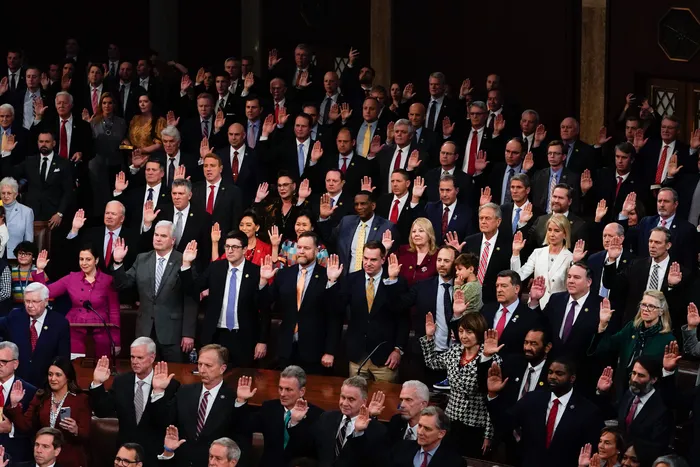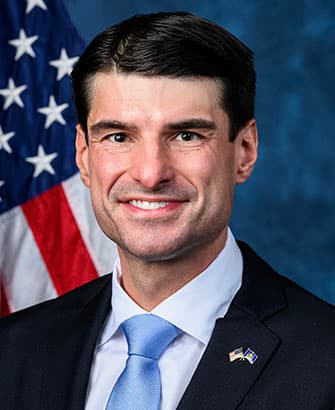The recent actions of Pennsylvania Representative Robert Bresnahan have unveiled a disturbing intersection of politics and personal profit. Just before voting in favor of President Trump"s "One Big, Beautiful Bill," which is projected to strip health insurance from 11.8 million Americans, Bresnahan traded stocks in Centene Corporation—a major player in the Medicaid space. This revelation raises critical questions about the morality of congressional stock trading, especially when the stakes involve the health and well-being of vulnerable populations.
Congressman’s Timing Raises Eyebrows
According to recent reports, Bresnahan purchased between $1,001 and $15,000 in Centene stocks on April 8 and sold them on May 15, right before the House passed the contentious tax bill by a slim margin of 218 to 214. This timing could not be more suspect, as the legislation is anticipated to decimate Medicaid funding by $880 billion over the next decade. The Congressional Budget Office warns that the bill could lead to millions losing their health insurance by 2034, predominantly affecting low-income families who rely on Medicaid for essential healthcare services.
Insider Trading Allegations Loom Large
The ethical implications of such stock trades by lawmakers are profound. As reported by NPR, members of Congress are permitted to buy and sell stocks, yet this practice has garnered bipartisan scrutiny. The concern centers around the potential for insider trading, where lawmakers might exploit non-public information to manipulate their financial portfolios. Bresnahan’s case exemplifies this troubling trend; finance professor Veljko Fotak articulated that it is "definitely not appropriate" and pointed out that such actions create a clear disparity between the financial acumen of elected officials and everyday citizens.
\n\n
Vanguard buys Centene office campus in University City ...
Health Care Impacts are Devastating
The implications of the "One Big, Beautiful Bill" extend far beyond mere numbers. As described in PubMed, Medicaid plays a crucial role in providing health insurance to millions of Americans, especially low-income individuals, children, and those with disabilities. The bill’s cuts and the introduction of work requirements will undoubtedly leave many without access to necessary medical care. The ethical ramifications of lawmakers profiting while enacting policies that threaten the health and livelihoods of millions are stark.
Political Reactions are Swift and Damning
In the wake of these revelations, political leaders have voiced outrage. New Mexico Democrat Melanie Stansbury stated, "This Congressman literally dumped stock in a Medicaid provider company right before this bill came to the Floor. Don"t be fooled—these guys know exactly what they"re doing." Senator Elizabeth Warren of Massachusetts echoed similar sentiments, condemning the actions as emblematic of the worst of Washington politics. She emphasized the need for a ban on congressional stock trading, arguing that protecting personal financial interests at the expense of public health is fundamentally unjust.
\n\n
The 118th Congress Speaker of the House selection
The Broader Context of Legislative Corruption
This incident is not an isolated case but rather part of a larger pattern of corruption within legislative bodies. As highlighted in research on U.S. political corruption, the intertwining of personal financial interests and legislative decision-making creates a toxic environment where public welfare is compromised for private gain. With the current administration prioritizing tax cuts and spending reductions, particularly in social programs like Medicaid, the consequences of this trend could be catastrophic for millions.
The public deserves transparency and accountability from their elected officials. As the debate around healthcare continues, it is imperative that we scrutinize the actions of those in power and demand reforms that prioritize the well-being of all Americans over the financial interests of a select few. The reality is that health care should never be a commodity for profit, especially when the lives of millions hang in the balance.



![[Video] Gunfire between Iraqi security forces and Sadr militias in Baghdad](/_next/image?url=%2Fapi%2Fimage%2Fthumbnails%2Fthumbnail-1768343508874-4redb-thumbnail.jpg&w=3840&q=75)
